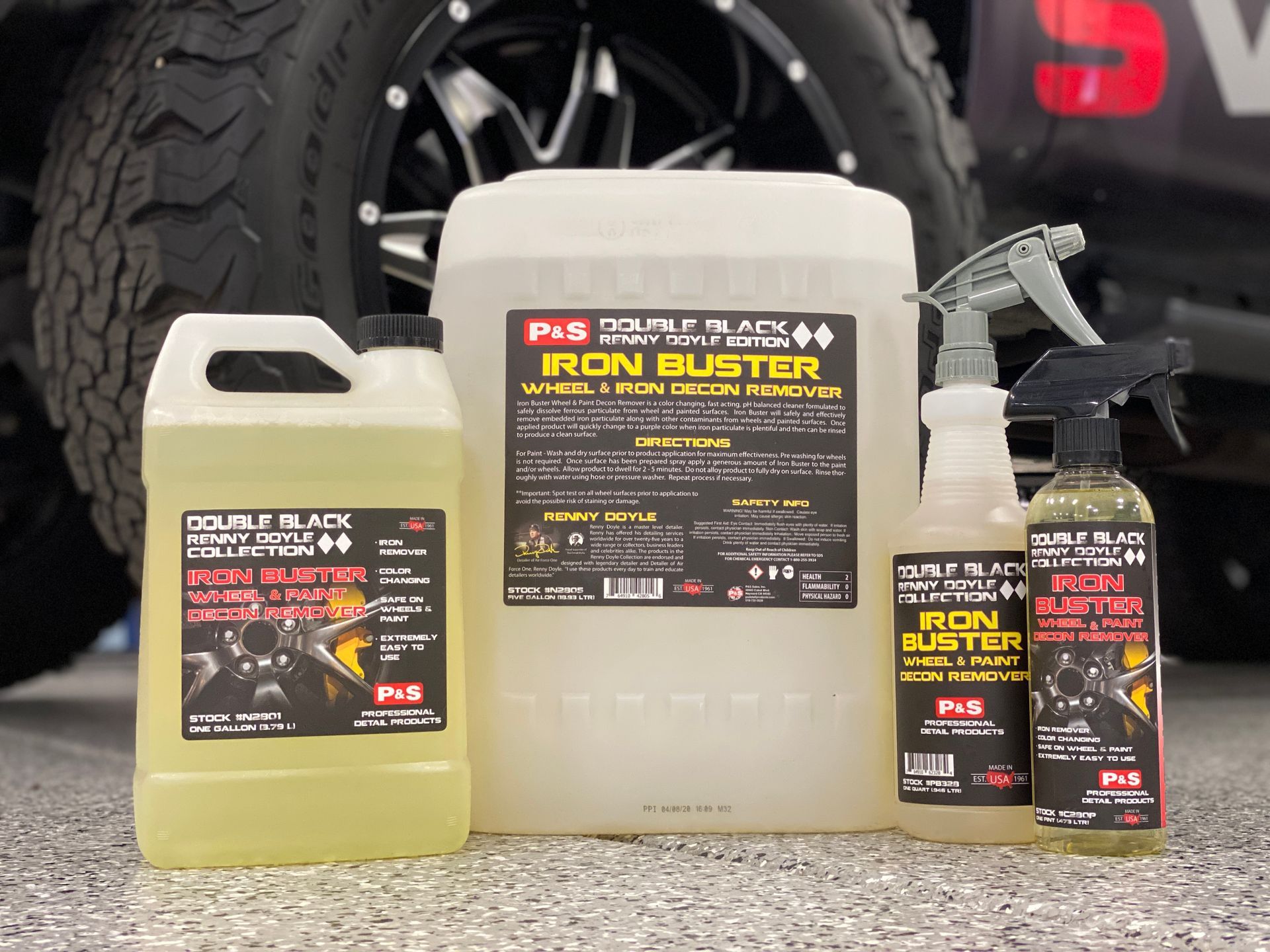Removing Iron And Other Contaminants From Your Paint
What's this?
You are looking at a chemical iron remover doing what it does best. Iron removers have the extraordinary ability to dissolve and remove iron contaminants that have bonded with your car’s paint like a clingy ex-lover, but it comes at a cost.. They stink!
Even though they smell bad, iron removers work their magic by reacting with iron oxide, commonly known as rust, which is gets embedded in the clear coat of your car’s paint. These rusty iron deposits come from industrial fallout, brake dust and road grime. When sprayed onto the affected area, the iron remover forms a complex with the iron oxide, causing it to loosen its grip on the paint and dissolve into a purple-ish liquid. This transformation is not only visually satisfying but also a clear indication that the iron remover is doing its job.
Now, why is it so important to remove these iron contaminants? Iron contaminants are like tiny, abrasive particles that scratch and mar the surface, leaving behind unsightly blemishes. Over time, these scratches can become more pronounced, resulting in a dull finish. They also prevent waxes, sealants and ceramic coatings from properly bonding to and protecting your paint. By using an iron remover, you’re essentially exfoliating your car’s paint and giving it a deep cleanse, removing those pesky iron contaminants and restoring its luster and beauty.
Book your detail with Chris at Octane Detailing. The San Fernando Valley’s most trusted detailer. Professionally trained, Licensed and Insured.



Founded in 2014 by Chris Woolman, Octane Detailing provides ceramic coatings, paint correction, interior/exterior detailing, and headlight restoration services to clients in the West San Fernando Valley. Professionally trained and certified, Chris ensures that top-quality care is brought to your vehicle without question. Having both in-shop and mobile detailing services makes us a favorable option in the area. Whether you want to see the shine of your paintwork improved, the gloss and hydrophobicity of your vehicle increased, or if you need regular car care, you can trust us to enhance your vehicle’s appearance with our professional detailing services now!
Quick Links
octane location
6464 Zelzah Ave, Reseda, CA 91335
Contact Details
PHONE: 818-975-0028
EMAIL:
chris@octanedetailing.com
Designed by the team at Detailers Roadmap, a platform developed for detailing operators across the globe.
All Rights Reserved | 8bitcreative, LLC | Octane Detailing

